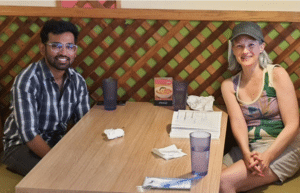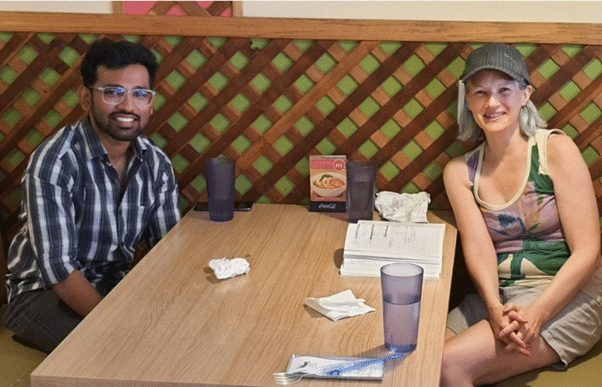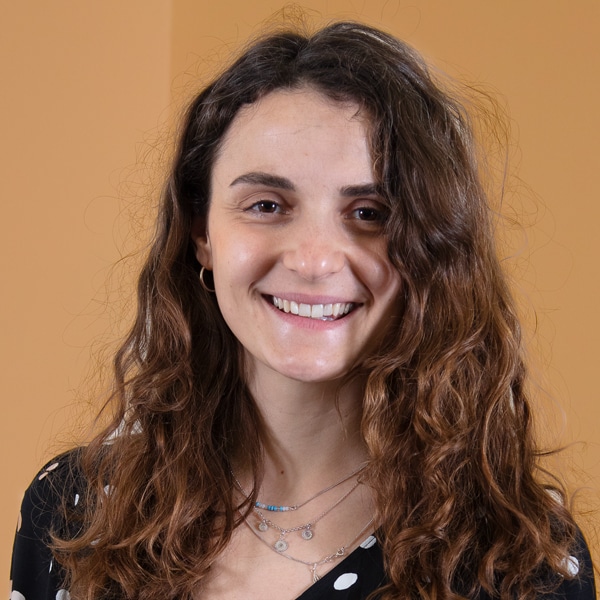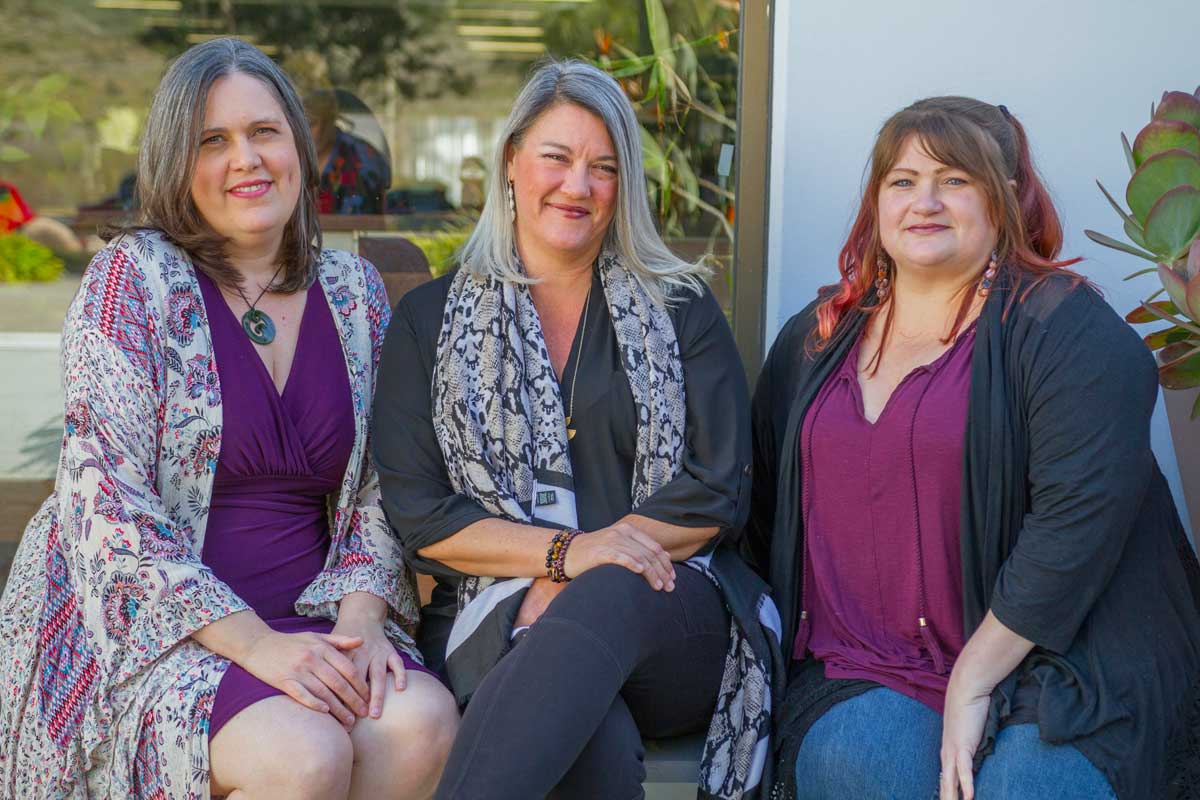Transcending Borders: Two Fellows Helping U.S. Trafficking Survivors Become Financially Literate
Two community activists, Jill Langhus-Griffin, the Founder of Liluye from Arizona, and Tarun Masapeta, the Founder of Project Educate India Financially (EIFL), from India, first met virtually in June, during the first weekly roundtable of the 2023 Goldin Global Fellowship. With other peers from around the world, during the Fellowship, they discussed their own communities' most emergent needs and ways they can play an active role in establishing and maintaining community-driven social changes. These discussions and utilizing the GATHER platform brought them closer to their shared goals for a better society.
After a joint meeting in August, Jill and Tarun met in person in Phoenix, Arizona, to dig deeper into a possible partnership between their two organizations to create a financial literacy program for trafficking survivors in the U.S. With a plan to tailor it to other areas of the world who could benefit from this training afterward, Jill and Tarun have forged a collaboration to empower trafficking survivors in the U.S.
Through this collaboration Project EIFL X Liluye was born to address the unique financial challenges faced by trafficking survivors in the U.S. The project spans an 8–10-week timeframe for approximately 8-10 participants. It features up to eight financial topics taught in 45-minute, separate Zoom workshops. Their endeavors in this joint initiative reflect the power of community-driven initiatives in tackling such issues.
Joining Forces to Help Trafficking Survivors Become Financially Literate
At the beginning of our conversation, they shared why the creation of this program was essential. From her experience and activism, Jill knew that survivors, especially those she knew in the U.S., have challenges around re-establishing their credit and becoming financially independent. “When Tarun and I first met and chatted online in July, and I found out that he had been offering other organizations education in financial literacy and other things, I realized there was an opportunity for collaboration.” Jill says. "To continue the mission of my project, it felt like a good intersection to integrate our ideas and bring the EIFL curriculum to trafficking survivors in the U.S. Jill gave me a little insight into how a lot of trafficking survivors usually end up losing most of their assets if they have any and their belief in themselves." Tarun says. Jill elaborates that traffickers often taint survivors' credit, thus making it hard for them to become economically empowered. “Providing a basic course on personal financing would be a good start to help these survivors get back on their own feet.” Tarun adds.

Goldin Global Fellowship as the Meeting Place
Jill and Tarun shed light on how their participation in the Global Goldin Fellowship played a role in the development of this program, considering one of them is from the U.S. and the other from India.
"If I had not been part of the Goldin Fellowship and had not been reaching out and interviewing other Gather fellows in our cohort, such as Tarun, I would not have known that there was an opportunity for collaboration on this financial literacy program."
- Jill Langhus-Griffin
She adds: “When Tarun and I were talking about Liluye and what my vision, plan, and goals were for it, and Tarun was talking about his organization, Project EIFL, it occurred to both of us almost simultaneously that there was an opportunity to collaborate and make more impact together.” Tarun also acknowledges they would not have joined hands in this collaboration if it had not been for the Goldin Global Fellowship: "Jill and I connected right before I left for the U.S. on a Zoom call where we discussed our work and how we felt there was a lot of scope to collaborate. We also met in person in Phoenix, Arizona, to discuss our expectations and set the ball rolling by laying out a blueprint." Even before this Zoom meeting, Jill was impressed by Tarun’s ambition, likable personality, and enthusiasm for impacting and helping others. “So, when we met on Zoom, it was not strange to me to ask him if he would be interested in collaborating on a financial literacy project/program together.” Jill says.
What does the project cover? What's its impact?
The Project EIFL X Liluye program will cover these areas that survivor colleagues and team members identified as being essential topics:
- How to open a bank account (step by step)
- How to calculate taxes (where to set them aside, where to put them, how to reinvest them, how to do balance sheets, and what is taxable)
- How to invest
- How to reinvest in their business (how to start anew as an individual and/or business)
- Organizational financial literacy (when given a lump sum and financing their own organization)
- How do they pay themself (not out of a business account)
- Where to put their money (what to budget in, what to spend on, and what percentage to take out)
- Financial Aid (for anyone considering going back to school).
Conclusively, they share what impact they strive to achieve through this project, both for the survivors and the broader community. Tarun says the project aims to teach financial literacy basics, allowing individuals to make learned decisions.
"Our goal collectively is to ensure that all attendees have a good understanding of topics we would discuss and that they are being in practice."
- Tarun Masapeta
He highlights that this marks EIFL's first project in the U.S., making it the 5th country outside India to facilitate financial literacy workshops. Jill, who is always looking for the best, most impactful ways to serve and help survivors, shares her thoughts on what this project means for the survivors. “It occurred to me that all survivors I know share a common concern about lack of funding. With this training, they potentially would not need to struggle anymore in this area, and they could become more empowered by having control over their finances and, in turn, their lives.”She hopes that all the survivors that attend the program will gain clarity in all the topics covered, that they will feel confident and empowered to take control of their finances or more so than they were before the program, and to build the organizations that they are planning to or feel more confident in controlling their organization’s finances after taking it.
Jill and Tarun are among 20 community activists who participated in the 2023 Goldin Global Fellowship, living and working in Albania, Bangladesh, Burundi, Cameroon, Ethiopia, India, Kosovo, Malawi, Mali, Nepal, Nigeria, the Philippines, Senegal, South Africa, Sri Lanka, Tanzania, the United States and Zimbabwe.For five months, this diverse group of fellows worked together as a Community of Practice, building on their neighbors' talents and their communities' assets to make real and lasting change around the world.
Veterans of Crisis, Shyne’s Survivors Swing into Action

Shyne San Diego enters day 22 of self quarantine for all team members as the day breaks with news of another rescue placed safely in a hotel, a young woman experiencing mental distress safely in a hospital, and letters clipped to the mailbox filled with emergency supplies ready to be shipped.

Here on the frontlines of human trafficking, Shyne San Diego was well positioned for the COVID-19 emergency regulation orders from the start. With central operations already running remotely, we held a community vision summit via Zoom on St. Patrick's Day. Shyne is operated by a network of survivor advisors and leaders, all of whom have experienced economic disparity, freedom restrictions, emotional abuse, physical abuse, and a lack of resources. COVID-19 exacerbates these issues outwards into our communities, but gratefully, this team knew how to respond.
Cynthia Austin, the founder of Shyne San Diego, is an inaugural GATHER Fellow, who has spent the last two years nurturing asset-based community development measures locally. Shyne had in place emergency response protocols, needs assessments, coordination platforms, and the community connections necessary to mobilize their team within hours of the mandatory quarantine. The teams use Zoom regularly to train, meet and support each other, Voxer to coordinate on the ground efforts, and shared Google Drive to track impact. Monitoring community impact is a critical step in their operations. In three weeks, trends have emerged. They are seeing very quickly an increase in needs for mental health support, work options from home, rent, cell phones, internet and basic home supplies.

In response, Shyne San Diego partnered with survivor-owned nonprofit Victory Garden Sanctuary to launch the first Survivor Advised COVID-19 Fund. Shyne's innovative, bold and candid reputation has gotten them the attention of the California District Attorney's Association, Civilization Research Initiative, and community volunteer organizations. Cynthia and her team of survivor advisors are assisting with research, funding solutions, survivor-led outreach, social media awareness campaigns, equipment for hospitals, and economic strategies to weather the months ahead.

COVID-19 impact on our global community is profound and swift. Each of us have a role in minimizing the impact of COVID-19 in our communities. Resiliency is an attribute survivors of exploitation possess that's extremely valuable in overcoming difficult times. Their ability to balance tragedy with action is crucial for making quick decisions within organizations, families, communities and personal lives. Cynthia asked her team, "What is your personal responsibility with responding to this crisis?" She then told them that one’s "respond-ability" is now measured by four areas: (1) able (2) necessary (3) practical (4) meaningful. You can do the same. Let's unite the fight against COVID-19 as a community of care.
Shyne San Diego
Women's Grassroots Leadership & Professional Development
"Ending exploitation by building a network of survivor owned & operated businesses."
Twitter @shynesandiego
Instagram @shynesandiego


